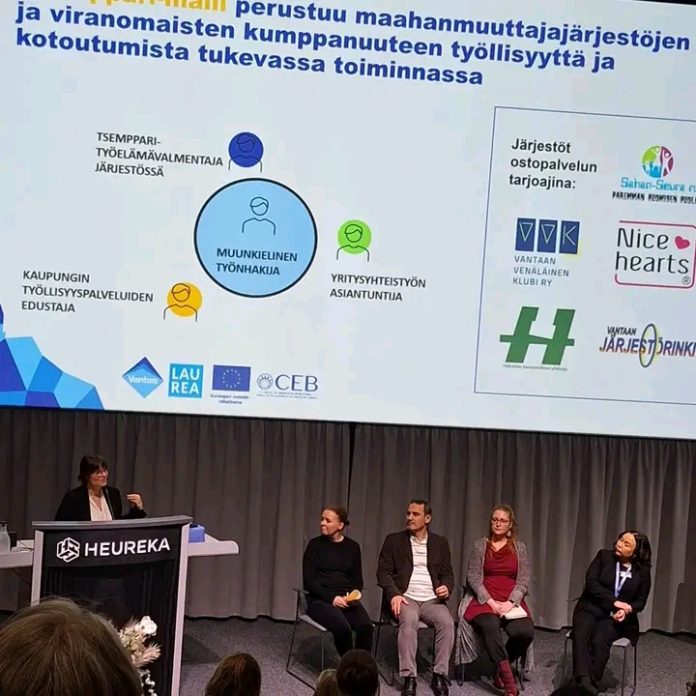Hope Nwosu, a Nigerian author and writer based in Finland, recently shared her insights on the integration of immigrant families into European society at the final seminar of the Smile Project. As an advocate for active citizenship, Nwosu emphasized the importance of immigrants participating in and contributing to their new communities. She explained that true integration goes beyond mere assimilation—it requires immigrants to feel that they belong and are actively involved in the society that receives them.
At the seminar, which showcased the outcomes and successes of the Smile Project, Nwosu reflected on the project’s objectives, which were focused on strengthening migrant family integration. The project sought to improve service development and foster new ways of dialogue between communities, schools, and services in the Vantaa neighborhoods of Finland. One of the core messages Nwosu took from the seminar was that family plays an essential role in the integration process. She stressed that any integration services should be designed with the unique needs of families in mind, as they are often the bedrock of a successful transition into a new life.
Nwosu also highlighted how the living conditions of immigrants can either support or hinder their integration. She noted that living in segregated areas, where immigrant communities are isolated from the broader society, often leads to negative outcomes, making it harder for families to establish connections and thrive. She further emphasized that integration is a two-way street, where both immigrants and the receiving society must actively engage in the process. It’s not just about immigrants adapting; it’s equally important for the host society to create an environment that is welcoming and inclusive.
Another key point Nwosu raised was the importance of employment in the integration process. Many immigrants are eager to contribute to society and have skills to offer, yet they often face barriers to accessing meaningful work. Nwosu emphasized that providing opportunities for employment not only allows immigrants to showcase their talents but also promotes their overall wellbeing and that of their families. Work, she pointed out, is a critical element in building a sense of purpose, stability, and connection to the society they are now a part of.
Beyond employment and language skills, Nwosu stressed that integration is a holistic process that requires immigrants to feel comfortable navigating their new environment. Integration, she argued, isn’t just about learning the language or finding a job—it’s about feeling that you belong and are part of the community. It’s about knowing where to go, how to access services, and building relationships that contribute to a deeper sense of belonging.
Reflecting on the successes of the Smile Project, Nwosu celebrated the positive outcomes, such as the successful employment of immigrants and the strengthened cooperation with organizations that support people from immigrant backgrounds. She was particularly heartened by the fact that the work started by the project would continue, ensuring that the momentum for meaningful integration remains.
In closing, Nwosu expressed her appreciation for the dedicated team behind the Smile Project, including Suvi Törrönen, Jenni Tahvanainen, Petra Pulli, and Mustafe Hirsi. Their hard work and commitment to improving the lives of immigrant families were clearly evident in the project’s achievements, and Nwosu commended them for their exceptional contributions to fostering a more inclusive society.
#Migration #Integration #Employment #Belonging #StrengthInDiversity #Smile #Multiculturalism




